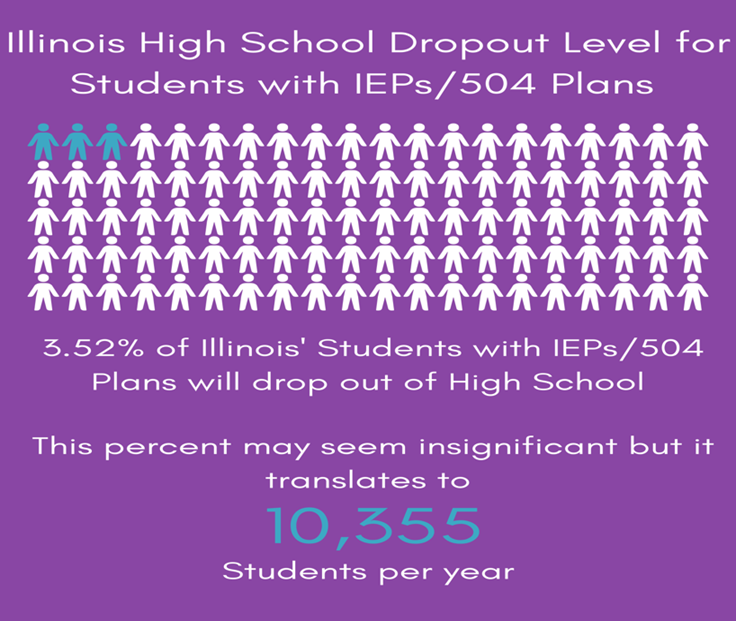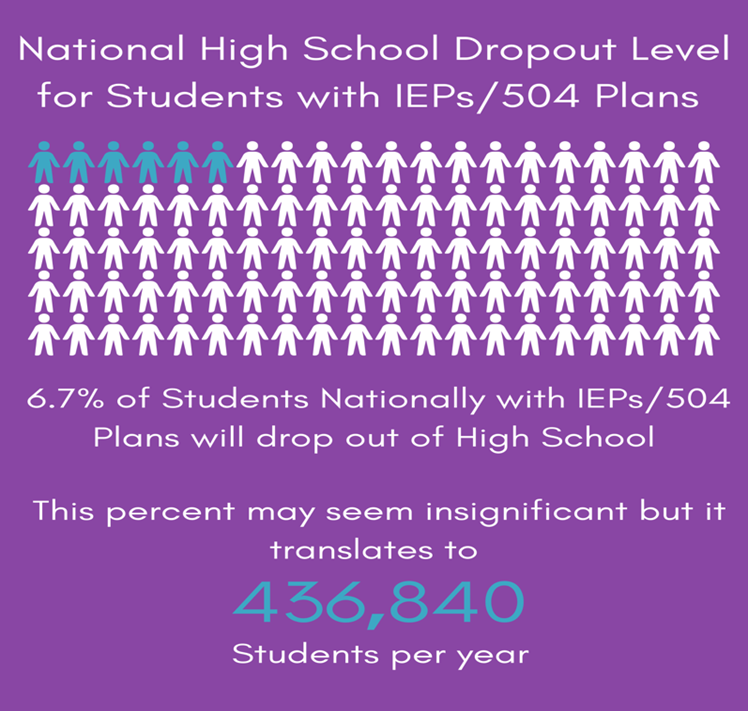Why
How can academic success be ensured for students with learning, social, emotional, behavioral, and other mental health disabilities and why is it important? According to the National Center for Learning Disabilities, there can be serious consequences when schools fail to provide the right supports for students with learning, social, emotional, behavioral, and other mental health disabilities. These consequences can include social isolation, inconsistent and unfair discipline, skipping school, dropping out, and becoming involved in the criminal justice system (Social, Emotional, n.d.). Students with disabilities are not all the same; the “right” supports are different for each student.
State and National data show the importance of combining the right services and accommodations to educate students with learning, social, emotional, behavioral, and other mental health disabilities.
Here are some staggering statistics on the national effects of high school dropout rates:
- An increase of just 5% in male graduation rates could result in an $18.5 billion reduction in annual crime costs
- The same 5% increase could result in a decrease in incidences of assault by 60,000 and larceny by over 37,000
- The national spending average to educate a student is just over $12,600 while the cost to house an inmate is over $28,000
- Cutting the national dropout rate would save the country over $7.3 billion in annual Medicaid spending
- Increasing the national high school graduation rate to 90% would create over 65,000 new jobs, boosting the economy by as much as $10.9 billion
These statistics point to the fact that high school graduation rates have a national impact” (Public School Review, 2022).
Learn more about statistics and consequences of student dropout:


